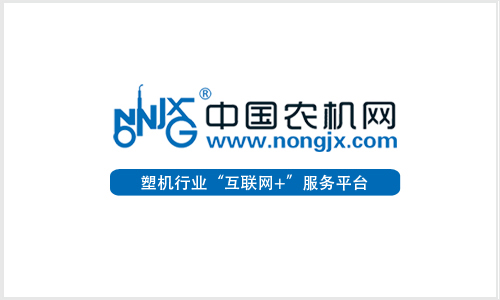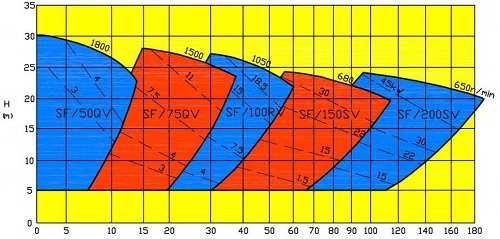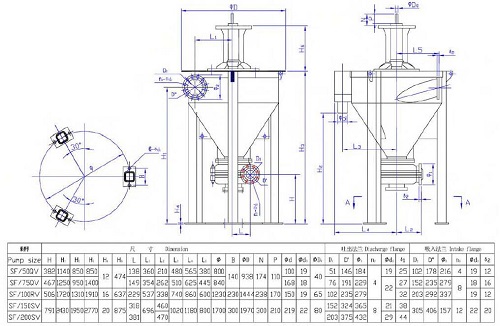[China Agricultural Machinery Industry News] Since the first document in 2016 proposed that corn should reform the pricing mechanism and establish a producer subsidy system, various information about the corn subsidy quota has been frequently transmitted. Chen Xiwen, deputy head of the Central Rural Work Leading Group and director of the office, said at the China Agricultural Development Forum held on April 17 that the specific subsidy quota and subsidy method are still under study and will be introduced in the near future.
    Chen Xiwen introduced that the principle of subsidies is that for the main corn producing areas, the subsidies should be based on the market price. The price after the completion of the supplement must be less than 1 yuan/kg; for non-main producing areas, the cultivation of corn should not be subsidized. If no corn is planted, subsidies should be given to reduce domestic corn production and to clean up corn stocks rhythmically.
    Chen Xiwen introduced that the principle of subsidies is that for the main corn producing areas, the subsidies should be based on the market price. The price after the completion of the supplement must be less than 1 yuan/kg; for non-main producing areas, the cultivation of corn should not be subsidized. If no corn is planted, subsidies should be given to reduce domestic corn production and to clean up corn stocks rhythmically.

The corn subsidy system will introduce a price below 1 yuan / kg
Market acquisition subsidy
In late March, Liu Xiaonan, deputy director of the Economic Development Department of the National Development and Reform Commission, announced in a joint media briefing at the National Development and Reform Commission, the Ministry of Finance, the Ministry of Agriculture, and the State Food Bureau. In 2016, the three northeastern provinces of China and Inner Mongolia The temporary corn storage and storage policy of the autonomous region will be adjusted to a new mechanism of “market-based acquisition subsidies†to better play the role of market formation prices.
"On the one hand, the price of corn is formed by the market, reflecting the relationship between supply and demand in the market, regulating production and demand, producers accompanying the sale of corn on the market, and various market entities enter the market independently; on the other hand, the establishment of a corn producer subsidy system and certain financial subsidies, The central financial subsidy funds will be allocated to the provinces and districts, and the local governments will coordinate the subsidy funds to the producers to maintain the corn planting income in the dominant production areas is basically stable.†Liu Xiaonan said.
Although the current amount and method of subsidies have not yet been announced, Chen Xiwen said that the “target price†after the completion of this year is definitely lower than the temporary storage price of 1 yuan/kg in 2015.
As for the specific amount of subsidies, Chen Xiwen said that it is necessary to consider the financial capacity and the development of the corn industry chain. Chen Xiwen said that there was a gap in the temporary storage and storage prices of corn in different regions. In 2015, it was unified at 1 yuan/kg, which means that the price of corn in the northeast region was reduced by 0.2 yuan per kilogram, and the average income of each farmer was reduced by 600 yuan.
However, because the collection involves many complicated links and procedures such as acquisition and warehousing, Chen Xiwen said that while the farmers reduced their income by 0.2 yuan per catty, the state also lost 0.25 yuan per catty.
Therefore, Chen Xiwen said that the quota and method of corn subsidies will “make supply and demand determine market prices and appropriately subsidize farmers’ income, thus guiding farmers to carry out structural reforms.â€
And let the market determine the price, first of all, there must be market and market players. "This requires non-state-owned, diversified storage and storage entities, and can not be a single grain storage company." Chen Xiwen said that in 2004, the Central No. 1 document proposed to completely liberalize food prices, but with low prices and temporary storage prices. The continuous improvement, only the government is in the acquisition, the company has withdrawn.
“Food purchases require a lot of money. At present, the state-owned acquisition entities have financial guarantees, while other entities have no guarantees.†Chen Xiwen introduced the pilot experience in Jilin Province, saying that Jilin Province screened 4,000 companies for banks last year, and the bank only identified 169 companies. Enterprises can acquire, and must be in place of the acquisition of China Grain Reserve in order to obtain bank loans. "The agreement between China Agricultural Development Bank and China Grain Reserve is a unified return of unified loans, so banks are not worried about the bad debts of China Grain Storage Branch."
Without capital guarantees, the market for multi-agent acquisition is difficult to achieve. Chen Xiwen said that the relationship between enterprises and banks has not yet broken.
Reduce production, go to stock
The purpose of such “price reduction†is to adjust the corn planting area and reduce the domestic production, so as to release the stock rhythmically.
Since 2007, China has implemented a temporary corn storage and storage policy in the three northeastern provinces and Inner Mongolia Autonomous Region. The original intention is to protect the interests of farmers and stabilize corn production.
The policy has indeed achieved results. According to the National Bureau of Statistics, in 2003, the national grain sown area was 1.491 billion mu, of which corn planting area was about 360 million mu. In 2015, the national grain planting area was 1.7 billion mu, of which corn planting area was 572 million mu, and corn planting for 10 years. The area has increased by more than 200 million mu.
“In a county I surveyed, the area planted with corn in 2010 was 1,000 mu, and in 2015 it increased to 650,000 mu.†Chen Xiwen said that many of the increased cultivated land is not suitable for growing corn. For example, some areas in the northeast are short due to short growing season. "Two skins and one umbilical", the quality is poor.
Therefore, one of the goals of the corn reform is to adjust the domestic corn acreage. Not only must the price formation mechanism be reformed, Chen Xiwen said, another principle of corn reform is that for non-main production areas, corn should not be subsidized, and other crops should be subsidized.
On the other hand, the temporary purchase price of corn has risen year after year, resulting in a large import of corn and corn substitutes. From an average of 0.7 yuan / kg in 2007 to 1.12 yuan / kg in 2014, about 60% in 7 years. At present, the price of imported corn in principle plus 1% tariff is about 1,500 yuan / ton, while the temporary storage and storage price of corn after 2015 is still as high as 2,000 yuan / ton.
China implements an import tariff and quota protection system for the three main staples of wheat, rice and corn. The annual import quota for corn is 7.2 million tons, and the tariff within the quota is 1%, which exceeds 65%. However, China does not set quota protection for corn substitutes, tariffs are between 2% and 5%, and even zero tariffs are imposed on countries and regions with free trade agreements. Therefore, corn such as barley, sorghum, dried cassava, and DDGS. The number of imports of alternatives has soared. According to customs data, in 2015, barley imports were 10.7 million tons (historically imported less than 1 million tons for a long time), sorghum imports were 10.69 million tons, DDGS imports reached a record 6.82 million tons, and cassava imports were 9.37 million tons.
A large number of imports have caused a large amount of domestic corn to only be accumulated in the country's grain depot. Ren Zhengxiao, director of the National Grain Bureau, revealed at the National Food Distribution Work Conference earlier this year that 42% of China’s food stocks were corn.
"At present, China's food security issue is transforming into agricultural industry security and farmers' livelihood security issues. Therefore, the higher the import quantity, the greater the threat to China's agricultural industry security." Chen Xiwen said that despite the protection of the three major staple food taxes and quota systems, The cost of production and food prices in our agriculture cannot continue to rise, which is the goal that must be achieved in agricultural reform. Whether corn reform can achieve its goals is related to whether the 13th Five-Year Agricultural Development Goals can be achieved.
“How to grasp the rhythm of inventory clearance depends on how the government operates.†Chen Xiwen said that in order for processing enterprises to use more domestic raw materials, the price of domestic corn must be equal to that of the international market.
The US Department of Agriculture report said that "the loss of 600 yuan per ton of corn stocks will result in a book loss of more than 10 billion US dollars." This has not considered storage costs. According to Chen Xiwen, the annual cost of grain storage in China is as high as 80 billion to 90 billion yuan.
(Original title: Chen Xiwen: The target price of corn is not higher than 1 yuan / kg)
SME SF Froth Pumps are supplied with parts in wear resistant High Chrome iron alloy, with a nominal
hardness of 600 BHN. The wear parts have large material sections for extra long wear life and are
designed for the toughest applications. SF pumps are designed to increase the pumpability of frothy slurry.
Selection Chart

Outline Dimensions

Froth Pump,Vertical Froth Pump, Full Flow Slurry Pumps,Froth Pumps
Shijiazhuang Minerals Equipment Co., Ltd , https://www.smepump.com